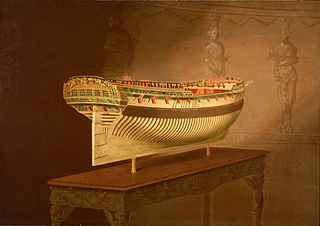Related Research Articles
Enterprise may refer to:
Eleven ships of the Royal Navy have been named HMS Antelope, after the Antelope:
Eight vessels of the Royal Navy have been named HMS Triton or HMS Tryton, after Triton, the son of Poseidon and Amphitrite, and the personification of the roaring waters:

HMS Enterprise was a 28-gun sixth-rate Enterprise-class frigate of the Royal Navy. She was the name ship of her class of twenty-seven ships.
Sixteen ships of the Royal Navy have been named HMS Mermaid after the mermaid:
Eight ships of the Royal Navy have borne the name HMS Northumberland after the English county of Northumberland, or the Dukedom of Northumberland. Another was planned but later cancelled:
Sixteen vessels and two shore establishments of the Royal Navy have been named HMS Phoenix, after the legendary phoenix bird.
Fifteen ships of the British Royal Navy have carried the name HMS Tiger after the feline tiger, with a number of others provisionally bearing the name at various stages in their construction:
Many ships of the Royal Navy have been named HMS Garland. The name dates back to 1242, being the oldest confirmed ship name in the Royal Navy.
Six ships of the Royal Navy have borne the name HMS Yarmouth after the Norfolk town and port of Great Yarmouth:
Ten ships of the Royal Navy have borne the name HMS Scarborough, after the town of Scarborough:
Six ships and a shore establishment of the Royal Navy have borne the name HMS Actaeon or HMS Acteon, after Actaeon, a figure in Greek mythology:
Sixteen ships of the Royal Navy have been named HMS Success, whilst another was planned:
Six ships of the Royal Navy have borne the name HMS Arrogant, or HMS Arrogante, whilst another was planned:
Seven ships of the Royal Navy have borne the name HMS Fowey, either after the Cornish town of Fowey, or the River Fowey which runs through it, whilst another two were planned:
Twelve ships of the Royal Navy have been named HMS Otter, for the otter.
Seven ships of the Royal Navy have borne the name HMS Strombolo, or HMS Stromboli, after the volcano Stromboli, in Italy:
References
- ↑ "Battle Honours of RN ships & Naval Air Squadrons". Royal Navy Research Archive.